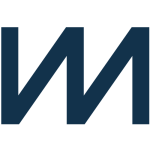About ChartMogul
ChartMogul can turn new and existing business intelligence data into valuable analytics that companies can use to improve their market performance. ChartMogul can take subscriber data - both created within ChartMogul and imported from other data sources - and generate visualized analytics for a variety of metrics that SaaS companies care about.
About GoodData
According to the platform's marketing literature, GoodData's powers '50% of Fortune 500 companies, over 80,000 businesses, and millions of concurrent users.' With its motto, 'analytics for everyone,' the solution offers an easy-to-use, drag-and-drop analytics interface so anyone across your organization — regardless of their tech knowledge — can set up dashboards and explore business insights to collaborate with team members and make better decisions. The platform also includes out-of-the-box and customizable machine learning algorithms for advanced forecasting and analytics. Moreover, because GoodData can process large, complex, and siloed datasets, this BI solution can scale to handle virtually any size demand.
Popular Use Cases
Bring all your ChartMogul data to Amazon Redshift
Load your ChartMogul data to Google BigQuery
ETL all your ChartMogul data to Snowflake
Move your ChartMogul data to MySQL
Bring all your GoodData data to Amazon Redshift
Load your GoodData data to Google BigQuery
ETL all your GoodData data to Snowflake
Move your GoodData data to MySQL
ChartMogul's End Points
ChartMogul Plans
Gather data about your subscription plans - like the subscription IDs, names, billing intervals, and the number of intervals that are charged at once - to evaluate the performance of each plan. This will help you better understand the effectiveness of your plans so that you can determine which ones are more or less successful as a whole.
ChartMogul Customers
Create, retrieve, or update data for new or imported customers in ChartMogul. This allows you to see important customer contact details, customer IDs, and valuable performance data including a customer’s MRR, ARR, and industry sector. You can then use that data to better segment your customers, which can provide more accurate and specific information about your business performance.
ChartMogul Invoices
Import invoice data for customers that you are tracking through ChartMogul, including customer IDs, dates of purchase, transactions, and any relevant line items. Then, use ChartMogul to create subscription data for those customers and use that data to track more specific revenue data, both in ChartMogul and in your other data sources.
ChartMogul Transactions
Track payments or refunds made on an invoice to see the transaction ID, type of transaction, transaction date, and whether or not the transaction was successful. This can help you get more accurate analytics from your invoice data. It can also indicate when there is an unusually high number of refunds, which could signal a problem worth addressing.
ChartMogul Subscriptions
Get a list of subscriptions that ChartMogul has automatically generated from invoice data. This endpoint returns several IDs - including subscription IDs, customer IDs, plan IDs, and data source IDs - that will help you to more easily track and integrate data between any of those parameters to create deeper, more accurate business analytics.
ChartMogul Tags
Use tags to track terms that are associated with a customer so that you can segment or monitor them more specifically. For example, you could tag a particular customer as “high priority,” “returning” or anything else that is relevant to your business, and then retrieve a list of customers who have been tagged with those attributes in order to analyze them as a segment.
ChartMogul Custom Attributes
Update customer data with ChartMogul custom attributes that are more specific to the needs of your company. This can include both tags as well as more complex custom attributes. Then, track those attributes in ChartMogul to get analytics that are focused on your particular business concerns.
GoodData's End Points
GoodData Analytics, Dashboards, Visualizations
GoodData features dashboards that you can easily embed into your desktop or mobile applications, so your business insights and visualizations are accessible wherever you need them to be. The platform includes customizable, interactive visualizations and drag-and-drop analytics and discovery tools. It also features easy-to-set-up machine-learning algorithms for forecasting and better decision-making.
GoodData Embedded Analytics
GoodData allows you to tailor each of your customer's experiences with personalized, embedded analytics and data models. By putting more power into your customers' hands, the platform lets your more tech-savvy users design and publish their own reports, dashboards, and visual presentations. Moreover, after developing new analytical features, you can distribute updates seamlessly across tens of thousands of users at once, or you can centrally manage distribution and customize the updates and features that different product audiences receive.
GoodData Data Ingestion at Scale
GoodData's fault-tolerant data pipeline enables high-speed ingestion of terabytes of information for tens of thousands of users. The platform also helps you respond to issues through constant monitoring and alerts that integrate with your incident response systems. GoodData's pre-built modules for data ingestion, transformation, and distribution offer time-saving advantages. Set up your data transformations in SQL and JDBC, and modify GoodData's pre-built modules with Python, Ruby, and Java SDKs.
GoodData Scalability
GoodData is an enterprise-level solution that offers reliable, real-time processing and insights at scale — no matter how many clients — with a capacity to handle virtually any size dataset.
GoodData Security and Compliance
GoodData offers the latest in data security technologies and risk management features so any size company can meet its industry's compliance and information security requirements. GoodData's Security Shield system is the platform's basic-level security offering, which adheres to standard best practices for cloud-based data protection, including ISO 27001:2013 compliance, GDPR compliance, and SOC2 Type II. Meanwhile, Enterprise Shield Security is GoodData's higher-level security offering, which offers protection for enterprises handling extra-sensitive and/or strictly-regulated information.








